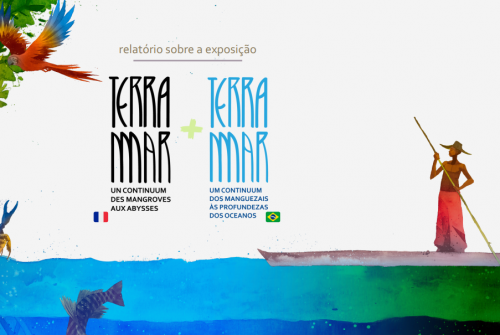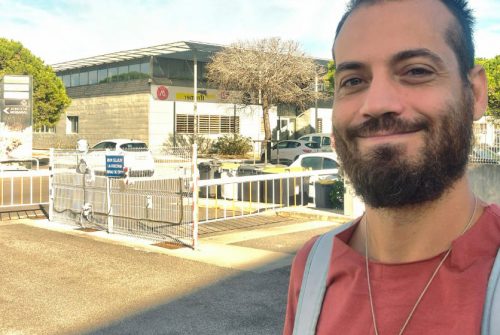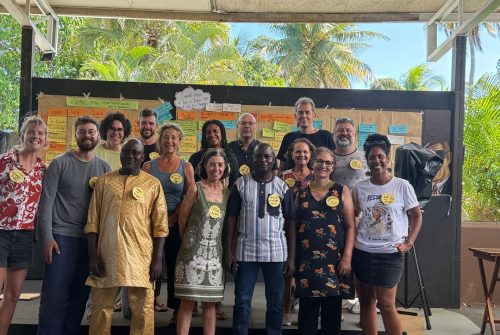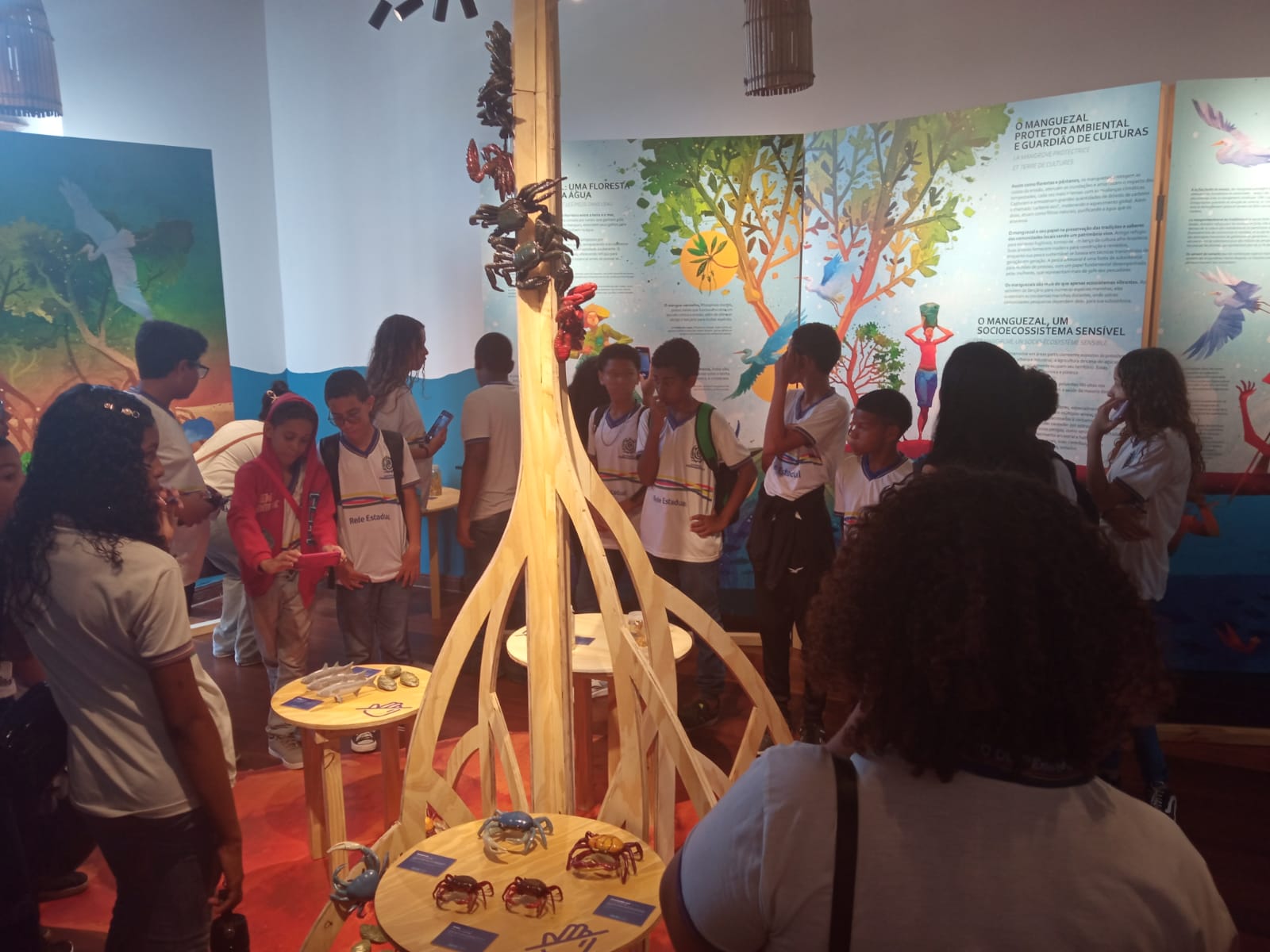
Recife, October 28, 2025 – The Terra-Mar exhibition closed this past Sunday, October 27, at the Torre Malakoff, after a 17-day run that offered a sensory and scientific immersion into Brazil’s coastal ecosystems. The exhibition united art, research, and environmental education, attracting thousands of visitors and fostering deep dialogue on marine conservation ahead of COP30. Developed by the International Joint Laboratory TAPIOCA and IRD Brazil, and bearing the slogan “From mangroves to the deep ocean: a continuum from mangroves to the deep sea,” the exhibition concluded its season at Torre Malakoff after a successful run in Montpellier, France, consolidating itself as an important scientific outreach initiative.
Art and Science in Harmony with the Ocean
The exhibition’s curatorship integrated artistic and scientific languages into a multimodal experience, bringing together the main visual identity conceived by Ayodê França, who translated the complexity of marine life into colors and shapes; marine animal sculptures made from recyclable materials by Eliú Damasceno, from the Conexões Viscerais (Visceral Connections) project; audiovisual content with scenes of coastal ecosystems and recordings made on board research boats during scientific expeditions; animals in glass directly from the laboratories of UFPE and UFRPE Universities; and three-dimensional resin pieces, painted with a realistic technique, representing marine species from coastal ecosystems, bringing the public closer to local biodiversity through detailed reproductions.
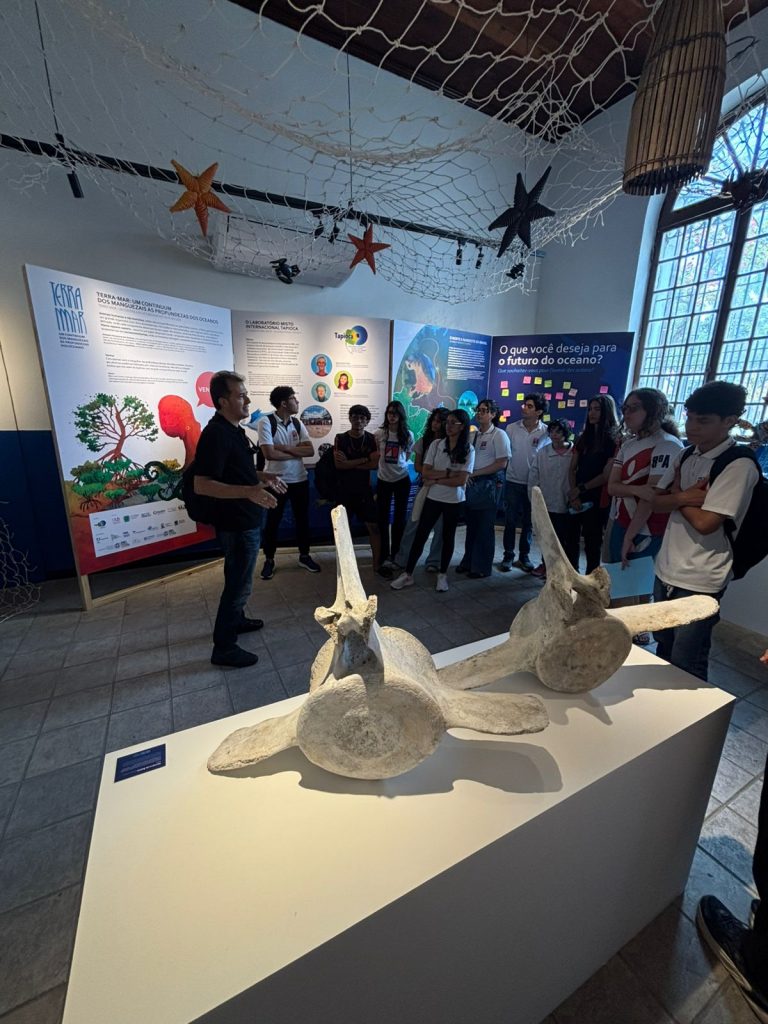
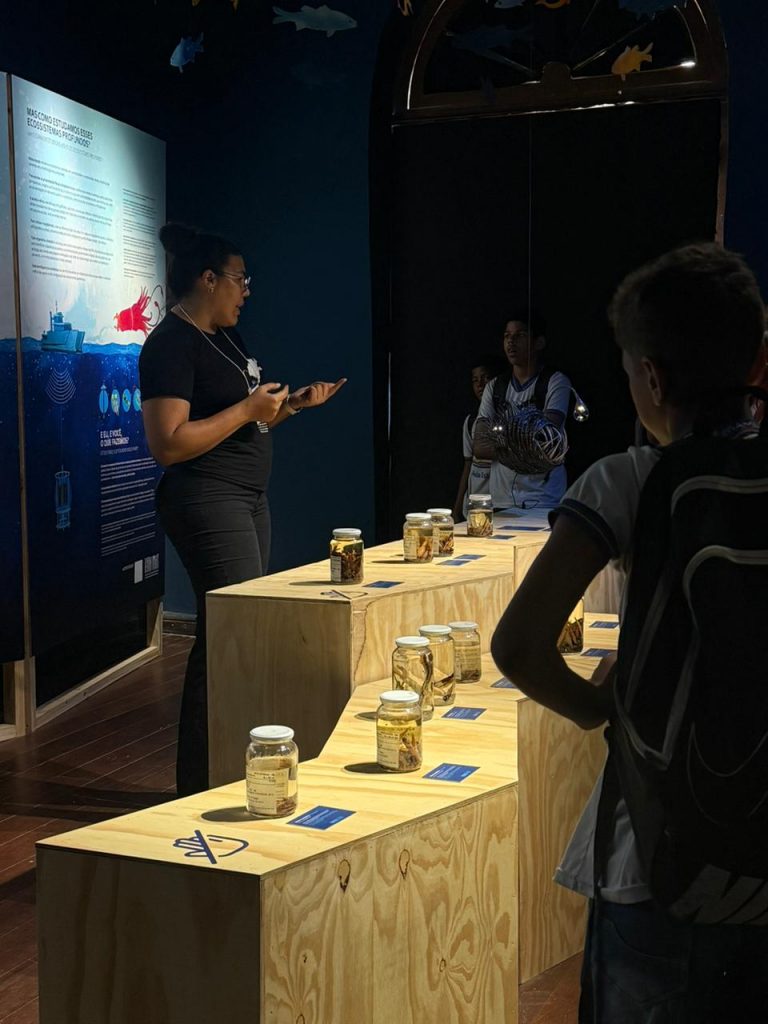
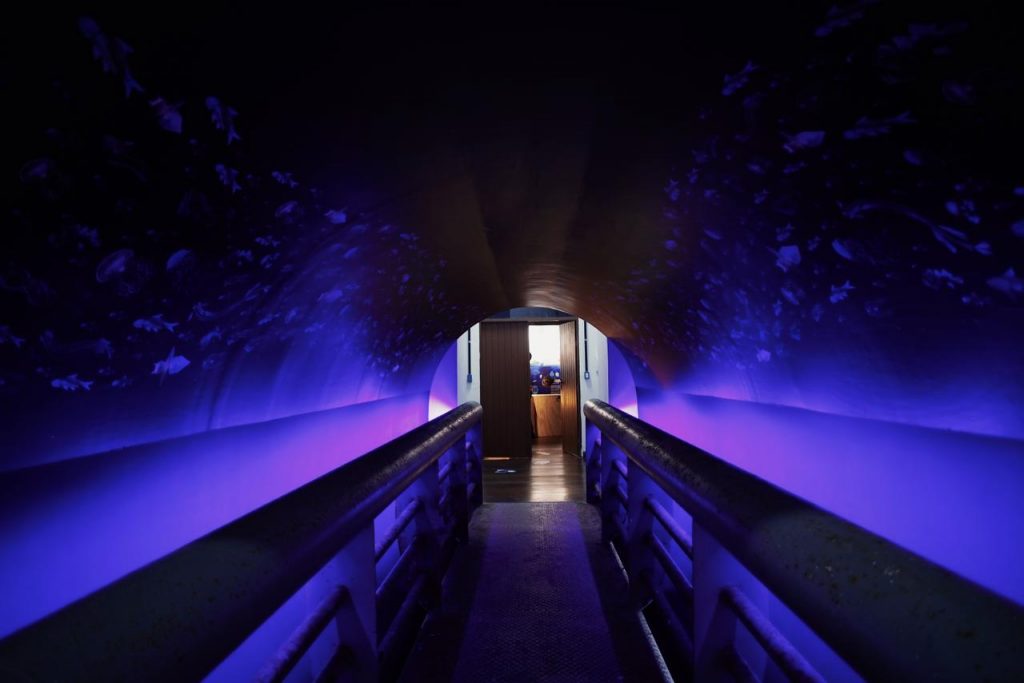
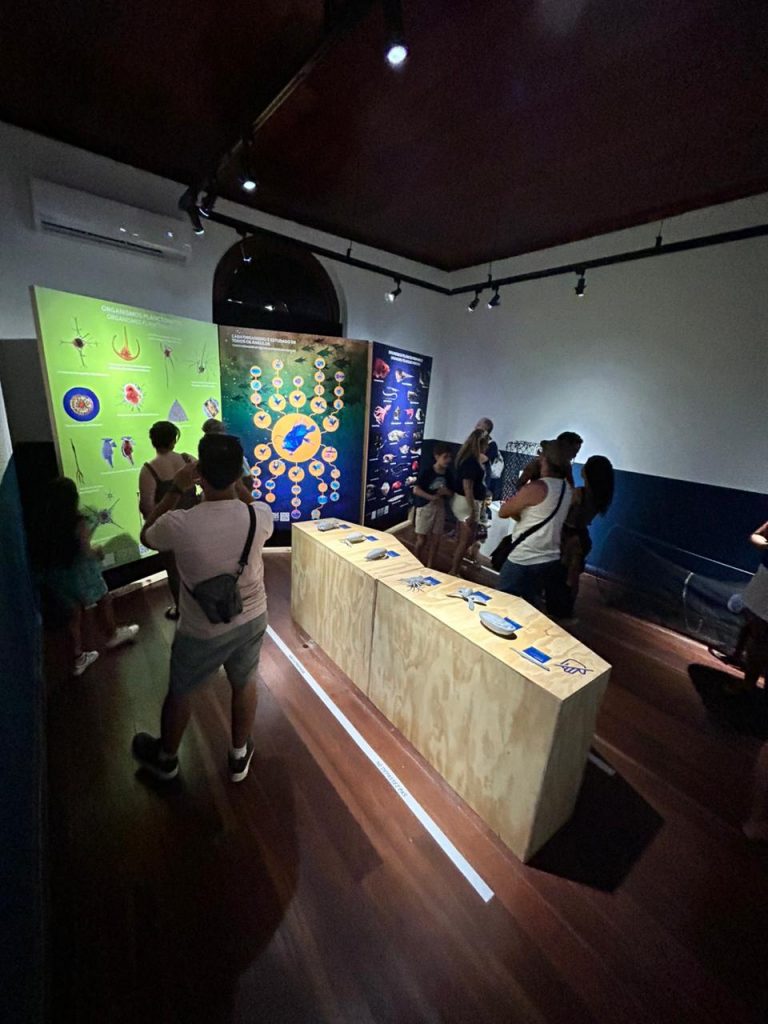
“The combination of artistic languages and scientific documentation allowed us to create a unique immersive experience,” noted Anne Justino, curator and programming coordinator. “The expedition videos and realistic sculptures were especially praised for showing both the beauty and complexity of marine ecosystems.”
Debates that connected knowledge
Between October 13 and 17, the cycle “Ideas to Postpone the End of the World” promoted roundtable discussions with researchers, educators, and community leaders. Among the topics highlighted:
- “Why study the ocean?” (10/13)
- “Climate change and the invisible future of the ocean” (10/15)
- “Plastics without borders: the human mark that the ocean cannot forget” (10/16)
“The ocean is not only a field of scientific study, it is also a space for life, culture, and belonging,” said Arnaud Bertrand, director of LMI TAPIOCA, during one of the debates.
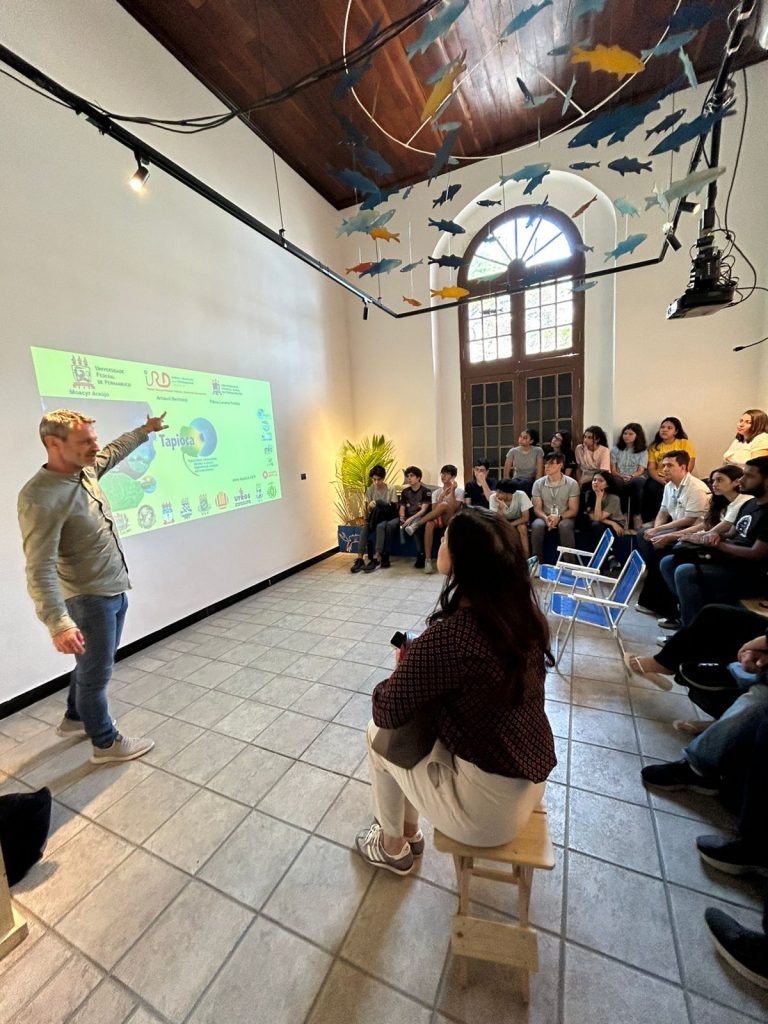
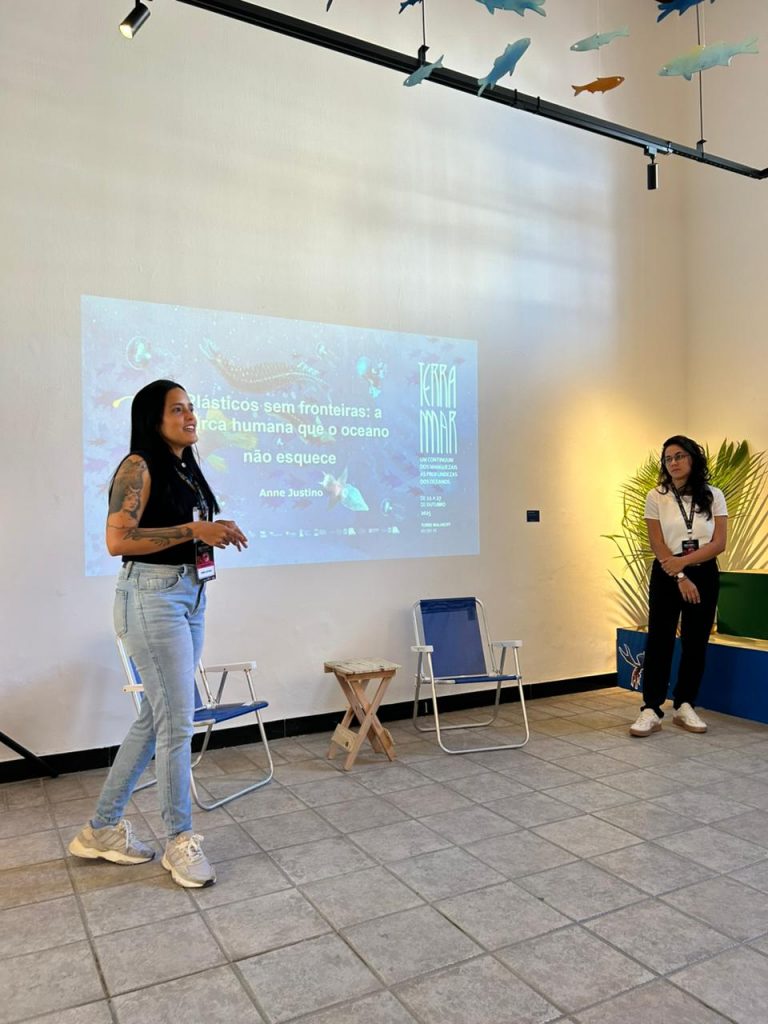
Ocean education for all ages
During the week of October 20-24, the “I am a crab and I am on the move!” activities welcomed schools and educators with:
- Guided tours of the exhibition
- Puppet theater about marine conservation
- Fun activities to teach about the ocean
- Interactive exhibitions such as PREAMAR, Bentos, and Deep Sea
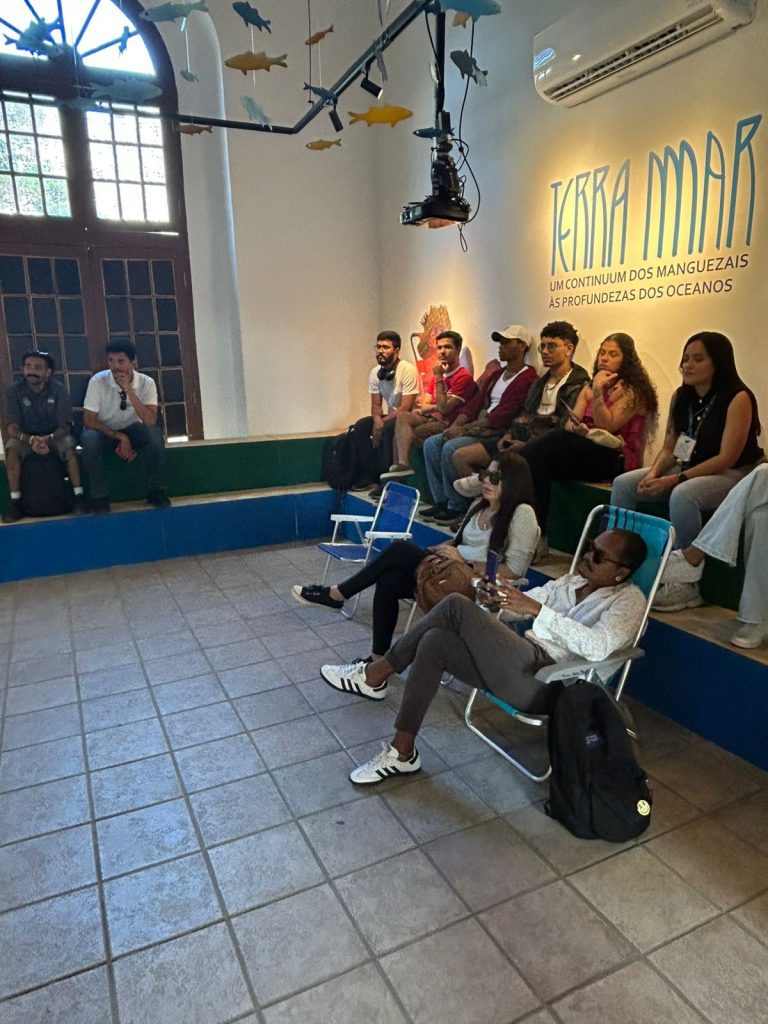
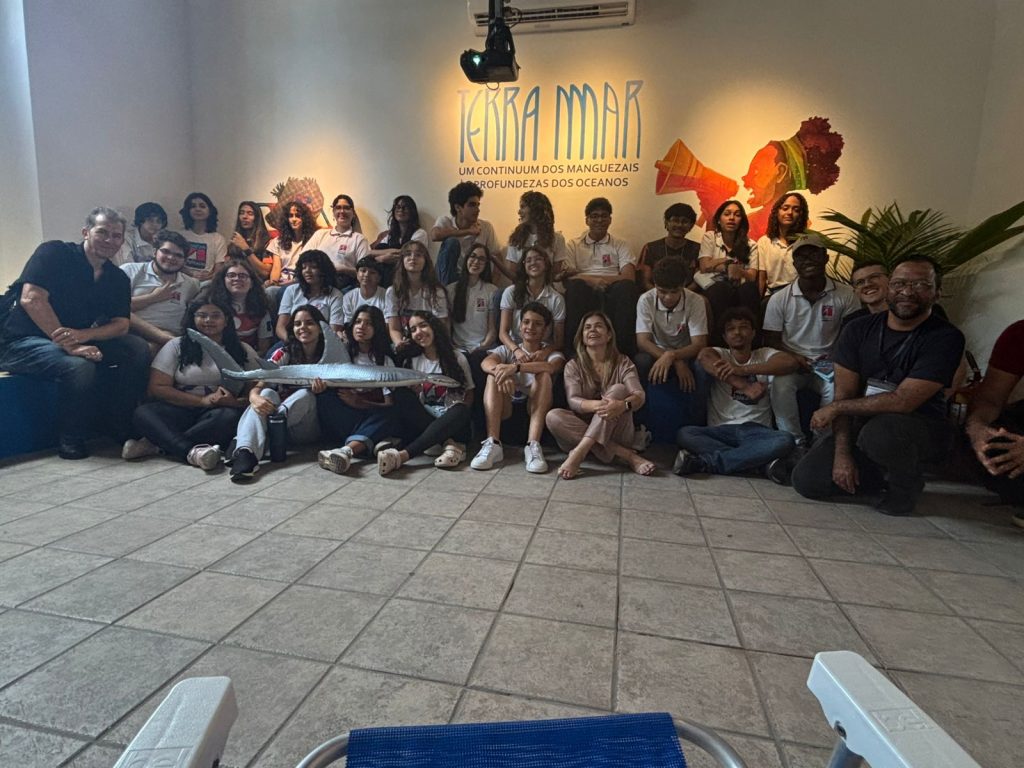
Cooperation that transcended borders
Terra-Mar was carried out by a broad network of partners:
Coordination
LMI TAPIOCA, IRD Brazil, Rede Clima Pesquisas, Ao Vento and BioImpact
Support
UFPE, UFRPE, SECTI, Pernambuco Culture Foundation, and French Embassy in Brazil
Sponsorship
Ministry of Fisheries and Aquaculture, FACEPE, and IRD France
The initiative was aligned with the United Nations Decade of Ocean Science (2021-2030), reinforcing the commitment to marine sustainability through art and dialogue between different fields of knowledge.
Sources consulted:



